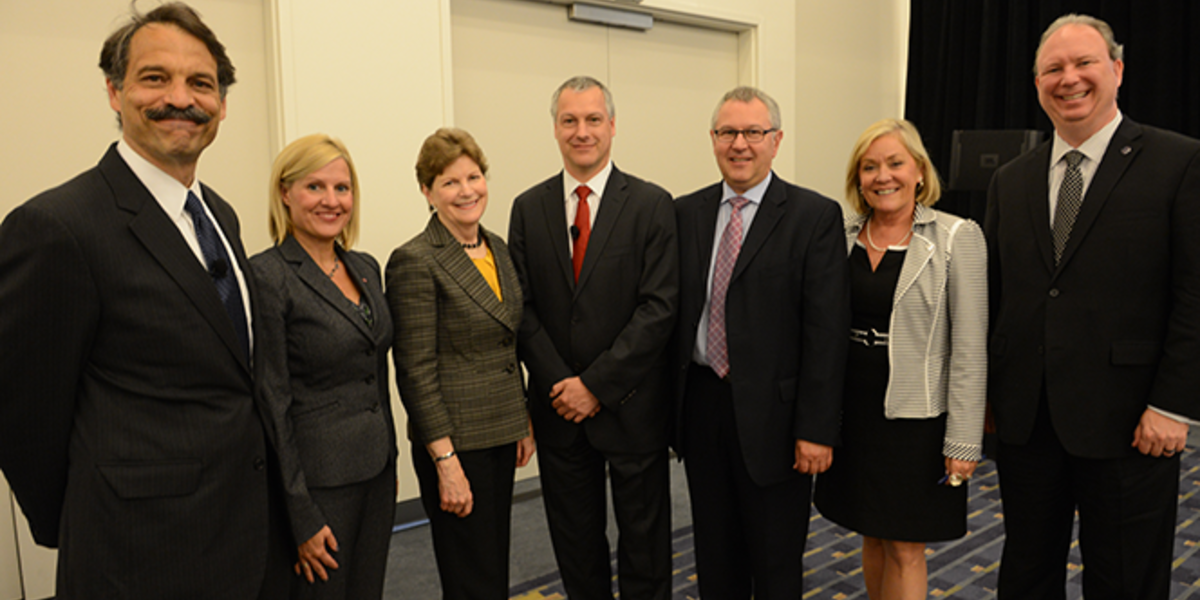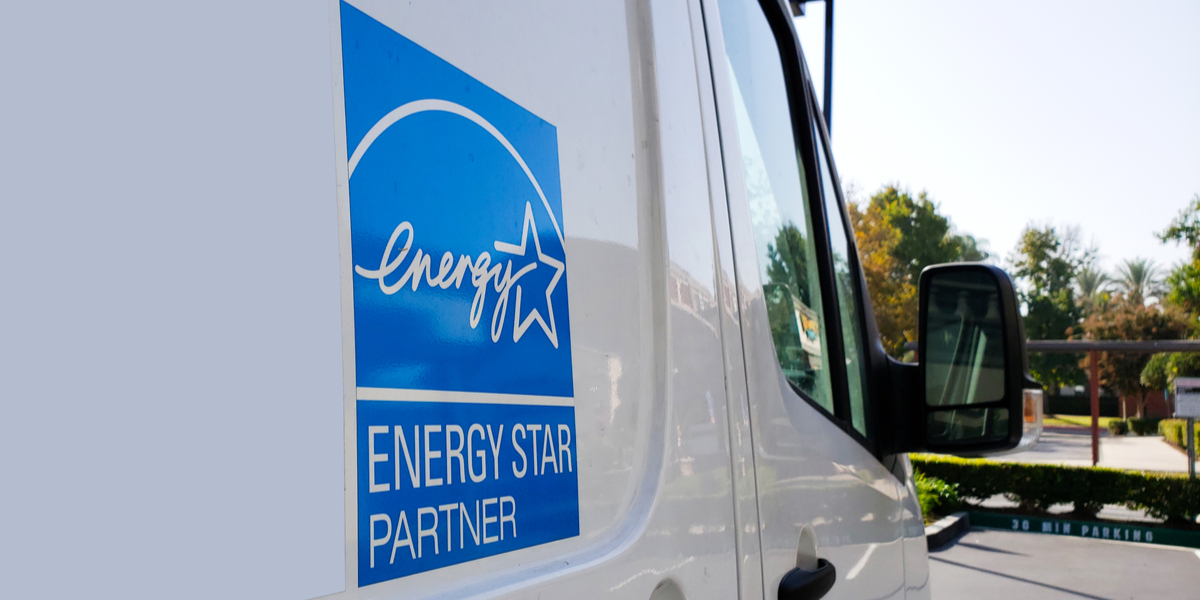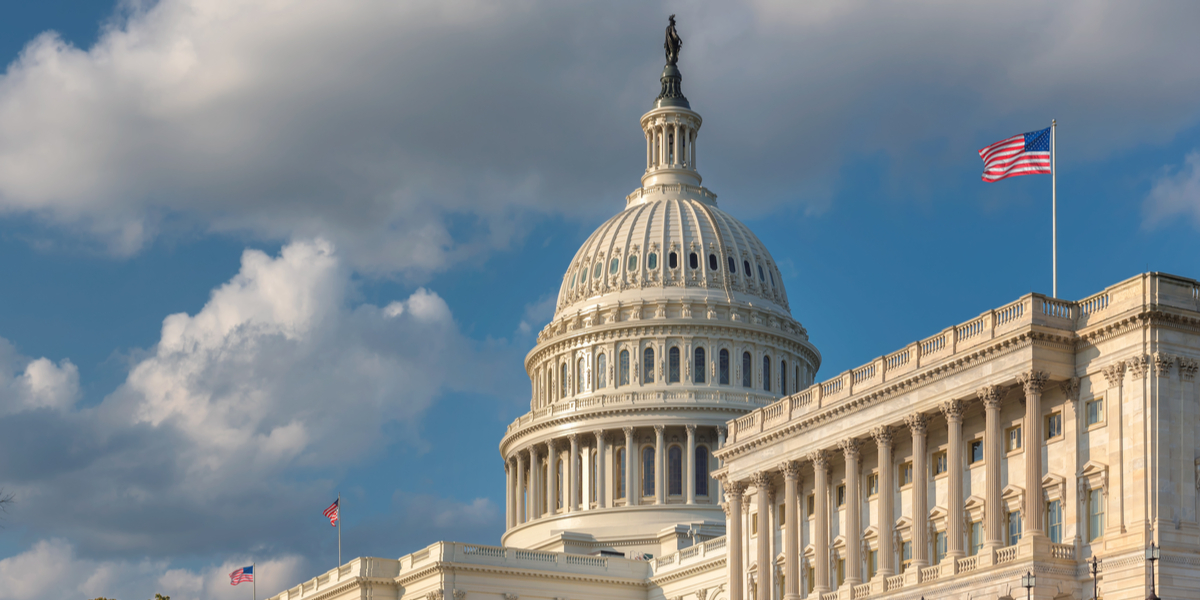Industry Leaders Talk the Future of Energy Efficiency
Let's Save Energy
Alliance to Save Energy's Blog
Industry Leaders Talk the Future of Energy Efficiency

The 7th Annual Energy Efficiency Global Forum (EE Global) kicked off today with global energy industry thought leaders discussing how the future energy landscape could impact the business of energy efficiency. Officially opening the session, Alliance to Save Energy President Kateri Callahan explained that the dialogue around energy efficiency policy has identified energy productivity as a lynchpin for success and it is for this reason the EE Global agenda is centered around Energy 2030, an initiative that seeks to galvanize action at the federal, state, and local levels of government, as well as in the private sector, by engaging stakeholders in a national, shared commitment to doubling U.S. energy productivity by 2030.
In her remarks, Callahan asked the audience, “when you get down to it, who is actually in favor of wasting energy?” As it turns out, no one likes to waste a good thing and companies are no different. Representatives from The Dow Chemical Company, Pacific Gas & Electric, Philips Lighting Americas, ThyssenKrupp Elevator AG, and Whirlpool Corporation were present to discuss how each company is leading on the energy efficiency front and spurring innovation despite adequate energy policies in place.
Andreas Schierenbeck, CEO & Executive Chairman of ThyssenKrupp Elevator AG credited recent megatrends for driving the change in our energy sector. According to Schierenbeck, 70% of the world’s population will reside in cities by 2050, requiring nearly double the amount of existing floor space. This alarming trend means building bigger and higher in the mega cities of the future. To increase efficiency, buildings must be looked at in a holistic approach as a system. One often-overlooked component of the building system is the immense energy savings potential of modern elevators. By modernizing old elevators, building owners can achieve up to 60% energy savings. Factor in half of all elevators in the U.S. are over 20 years old and that figure becomes more substantial.
Members of the panel all agreed that a systems-based approach would provide customers with needed flexibility to save energy. Helen Burt, Senior Vice President and Chief Customer Officer at Pacific Gas & Electric surmised the point by noting that customers are purchasing energy as an entire system. In contrast with the way consumers purchase energy, efficiency is measured at an individual level instead of a systems level.
Referring to the systems-based approach, Jane Palmieri, Business President, Dow Building & Construction at The Dow Chemical Company added that it’s easy to save, but difficult to do. We must change the way we look at efficiency to better reflect what the customer expects.
Another unique perspective came from Dave Szczupak, Executive Vice President, Global Product Organization at Whirlpool Corporation. Product development has three distinct phases: optimization, innovation, and transformation. According to Szczupak, we are very far along in the optimization phase and some areas are beginning to plateau. Since 2000, Whirlpool has made its newest products 77% more efficient. Key future efficiency gains will be found in the innovation and transformation phases, which tend to be the most difficult to establish. To double U.S. energy productivity by 2030, the U.S. must have policies in place that incentivize research and development of new and unique ways to meet customer demands more efficiently.
All members of the panel agreed there is a stark need for comprehensive energy policies to incentivize efficiency. According to Jeff Cassis, Senior Vice President and General Manager Global Systems PLS at Philips Lighting Americas, companies will continue to innovate no matter the policies in place, but market transformations are unlikely to happen unless policy makers embrace it. If federal policies continue to lag behind technological research and development, the U.S. will too lag behind other countries, having a dramatic impact on future generations.
Senator Jeanne Shaheen (D-N.H.) took the stage to provide keynote remarks and bring the morning’s discussion full circle. Senator Shaheen has long been a strong proponent of energy efficiency, having been an original author of the Energy Savings and Industrial Competitiveness Act of 2014 and its previous iterations. The Senator from New Hampshire noted that if the U.S. wants a stable energy future and an economy that creates jobs, we need policies in place at the federal level to encourage energy efficiency. “The last 40 years, we’ve saved more energy through efficiency than was produced from fossil fuels and nuclear combined,” she said. The Energy Savings and Industrial Competitiveness Act is that opportunity and she remains hopeful the bipartisan legislation will be considered again in the Senate.
Policy Assistant Jordan Nichols contributed to this post.
RECENT BLOG POSTS
STAY EMPOWERED
Help the Alliance advocate for policies to use energy more efficiently – supporting job creation, reduced emissions, and lower costs. Contact your member of Congress.
Energy efficiency is smart, nonpartisan, and practical. So are we. Our strength comes from an unparalleled group of Alliance Associates working collaboratively under the Alliance umbrella to pave the way for energy efficiency gains.
The power of efficiency is in your hands. Supporting the Alliance means supporting a vision for using energy more productively to achieve economic growth, a cleaner environment, and greater energy security, affordability, and reliability.



